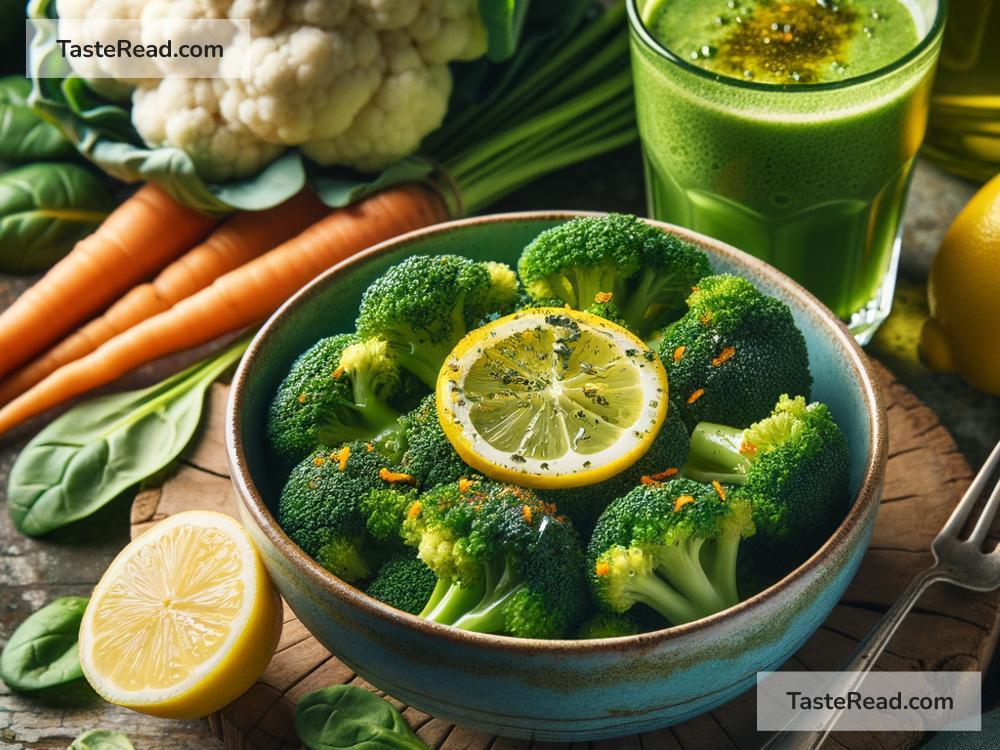How Broccoli Became a Favorite in Health-Conscious Diets
Broccoli might be one of the most famous vegetables on dinner plates around the world today, especially for people who care about their health. But this green, tree-like vegetable wasn’t always so popular. In fact, it had to work its way into becoming a favorite in health-conscious diets. Let’s explore how broccoli rose to fame and why so many people love it for its health benefits.
A Brief History of Broccoli
Broccoli has been around for more than 2,000 years! It was first grown in Europe, particularly in Italy, where it was a staple in the Mediterranean diet. The word “broccoli” comes from the Italian word broccolo, which means “the flowering crest of a cabbage.” This makes sense because broccoli is part of the cabbage family, along with cauliflower, kale, and brussels sprouts.
While Italians appreciated broccoli early on, it took a while before the vegetable became popular elsewhere. In the 1500s, members of the French and English upper class started eating broccoli, but it was still far from being a global favorite. Broccoli began making its way to the United States in the early 1900s, thanks to Italian immigrants. It wasn’t until much later that Americans—and eventually people around the world—started to take broccoli seriously.
The Rise of Broccoli in the Health World
Broccoli’s journey to becoming a health superstar truly took off in the late 20th century. In the 1980s and 1990s, people were becoming more aware of the importance of eating fresh, nutritious foods. Diet trends were moving away from processed snacks and fast food and focusing more on fruits, vegetables, and whole grains. This shift created the perfect stage for broccoli to shine.
Scientists and nutrition experts started studying broccoli closely and discovered it was packed with nutrients. For example, broccoli is rich in vitamins like Vitamin C, Vitamin K, and folate. It also contains fiber, which is important for digestion, and antioxidants that help the body fight illnesses and inflammation. These health benefits gave broccoli the reputation of being a “superfood.”
During this time, broccoli started popping up in recipes, cookbooks, and TV shows. Celebrity chefs and health experts encouraged people to include more broccoli on their plates. It was steamed, roasted, stir-fried, added to soups, and made into casseroles. Its versatility allowed broccoli to fit into a wide range of cuisines, making it easier for people to enjoy.
The Role of Marketing
Believe it or not, marketing played a big role in broccoli’s rise to fame. One example is the famous commercial featuring the late U.S. President George H.W. Bush. In 1990, Bush humorously announced that he didn’t like broccoli and banned it from being served on the presidential plane. While many found his dislike amusing, broccoli producers decided to turn this moment into an opportunity. They promoted broccoli as a fun and healthy vegetable, and sales actually increased! This quirky story showed that even negative publicity can sometimes work in a vegetable’s favor.
Additionally, health campaigns promoting fruits and vegetables often painted broccoli as a must-have for a balanced diet. It became a go-to recommendation for parents trying to encourage their kids to eat their veggies.
Why Health-Conscious Eaters Love Broccoli Today
There are many reasons why broccoli is still such a big favorite among people who prioritize healthy eating. Here are just a few:
-
Nutritional Powerhouse
Broccoli is loaded with vitamins, minerals, and fiber. It’s especially praised for its antioxidants, which may help reduce the risk of certain diseases, such as cancer and heart problems. -
Low in Calories
Broccoli is a great option for people looking to manage their weight. Because it’s low in calories but high in nutrients, it helps you feel full without overloading you with unhealthy fats or sugars. -
Versatility
You can do so much with broccoli. Whether it’s fresh, frozen, or part of a meal, broccoli can be adapted to countless recipes. From steaming to baking to blending it into a smoothie, the options are endless! -
Gut-Friendly
The fiber in broccoli makes it a digestive helper. Eating broccoli can help keep your gut healthy and prevent constipation. -
Supports Immunity
Thanks to its Vitamin C content, broccoli is great for boosting your immune system. Eating it regularly may help your body fight off colds and other viruses.
How to Make Broccoli Tasty
One common complaint about broccoli is that it can taste bland or bitter if not cooked well. But with the right preparation, broccoli transforms into something delicious. Here are a few tips for making broccoli more enjoyable:
- Roast it: Toss broccoli with olive oil, salt, and pepper, then roast it until crispy for a nutty, caramelized flavor.
- Add sauces: Pair broccoli with cheese, garlic butter, or soy sauce for extra flavor.
- Combine it with proteins: Stir-fry broccoli with chicken, tofu, or shrimp for a healthy and balanced meal.
- Mix it with other veggies: Combine broccoli with carrots, zucchini, or bell peppers for a colorful side dish.
Closing Thoughts
Broccoli didn’t start out as a universally loved vegetable, but it proved its worth over time. Today, it’s one of the healthiest and most versatile foods you can add to your diet. Whether you’re looking for a boost in vitamins, better digestion, or just a delicious vegetable to enjoy, broccoli deserves a place on your plate.
If you haven’t embraced broccoli yet, give it a try. You might be surprised at how a little green vegetable can help transform your meals—and your health!


